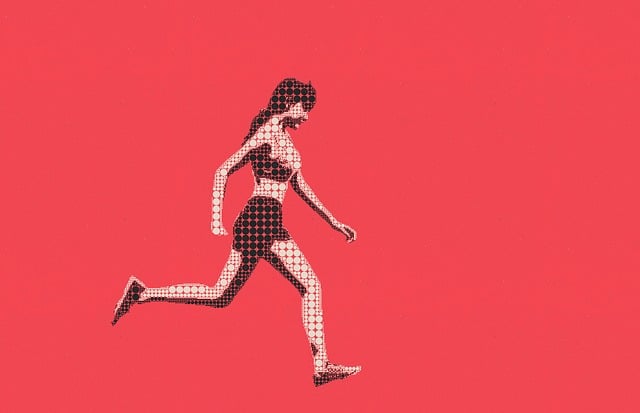Kratom's active compounds disrupt hormone levels related to hair growth and shedding, including DHT linked to male pattern baldness. Its diuretic properties can lead to dehydration, compromising follicle nourishment. Mental toughness is enhanced by kratom's focus-improving, anxiety-managing, and energy-boosting effects when combined with training techniques like exposure therapy, visualization, and goal setting. Responsible use integrated into a balanced lifestyle minimizes side effects, promoting mental clarity and emotional regulation for improved psychological resilience. Kratom aids mindfulness practices during meditation, fostering present-moment awareness crucial for stress and anxiety management.
“Uncover the powerful synergy of mental toughness training and kratom—a natural herb gaining traction in wellness circles. This article explores how kratom, known for its diverse effects, impacts hair health and mental resilience. We delve into ‘mental toughness’ techniques to enhance performance and navigate challenges. Additionally, we examine the role of mindfulness in combining with kratom for optimal well-being, providing insights into these complementary practices, especially considering the intriguing question: why does kratom cause hair loss? Discover practical strategies for holistic mind-body wellness.”
- Unraveling Kratom's Impact on Hair: The Science Behind Loss
- Mental Toughness: Training Techniques for Resilience
- Integrating Kratom and Mindfulness for Optimal Wellbeing
Unraveling Kratom's Impact on Hair: The Science Behind Loss

Kratom, a natural herb known for its potential therapeutic benefits, has gained popularity in recent years. However, one less discussed side effect is its impact on hair health, particularly causing hair loss. Unraveling the science behind this phenomenon is crucial for users to understand why kratom can affect their scalp and follicles.
Research suggests that kratom’s active compounds interact with various bodily systems, including the endocrine and cardiovascular systems. This interaction may disrupt natural hormone levels, specifically those related to hair growth and shedding. The herb’s effects on androgen hormones, such as testosterone and dihydrotestosterone (DHT), could be a contributing factor to hair loss. Excessive DHT is known to play a significant role in male pattern baldness. Moreover, kratom’s diuretic properties might lead to dehydration, which, in turn, can impact hair health by compromising the body’s ability to nourish and sustain follicles. Understanding these mechanisms provides insights into why some users experience sudden or accelerated hair loss while incorporating kratom into their routine.
Mental Toughness: Training Techniques for Resilience

Mental toughness is a key component in achieving peak performance, both physically and mentally. It’s about developing resilience to stress, pressure, and adversity. Incorporating kratom into your training regimen can offer unique benefits for mental toughness. Kratom, known for its various strains and effects, can enhance focus and concentration, allowing athletes to stay locked in during intense workouts. Its calming yet energizing properties can help manage anxiety and stress, enabling individuals to push through challenging tasks with renewed determination.
Training techniques such as exposure therapy, visualization, and goal setting are powerful tools that complement kratom’s effects. Gradually exposing yourself to stressful situations helps build mental fortitude. Visualizing success before a task increases confidence and reduces performance anxiety. Setting specific, achievable goals provides clear direction and a sense of accomplishment, fostering a resilient mindset. While exploring why does kratom cause hair loss might be pertinent information for some, focusing on these mental toughness strategies ensures individuals are equipped to handle any challenge that comes their way, both in training and beyond.
Integrating Kratom and Mindfulness for Optimal Wellbeing

Kratom, a natural herb known for its mood-enhancing and pain-relieving properties, has gained popularity in recent years. When combined with mindfulness practices, it can offer a powerful approach to mental toughness training. The calming effects of kratom can facilitate deeper relaxation during meditation, allowing individuals to cultivate a stronger present-moment awareness. This heightened mindfulness is crucial for managing stress, anxiety, and improving overall psychological resilience.
Moreover, while some users may wonder why does kratom cause hair loss, research suggests that it’s often due to its diuretic properties, leading to dehydration and nutritional deficiencies if not used responsibly. However, when integrated into a balanced lifestyle, mindfulness techniques can help individuals make conscious choices about their Kratom consumption, ensuring optimal wellbeing without adverse side effects. This holistic approach promotes mental clarity, emotional regulation, and physical balance, ultimately contributing to enhanced mental toughness.
Kratom, while offering potential benefits, can cause hair loss due to its impact on the body’s hormonal balance. However, combining Kratom training with mental toughness strategies and mindfulness practices can lead to enhanced resilience and overall wellbeing. By understanding the science behind why kratom causes hair loss and utilizing effective mental toughness techniques, individuals can navigate the complexities of this herb while maintaining a balanced approach to their health and wellness journey.














